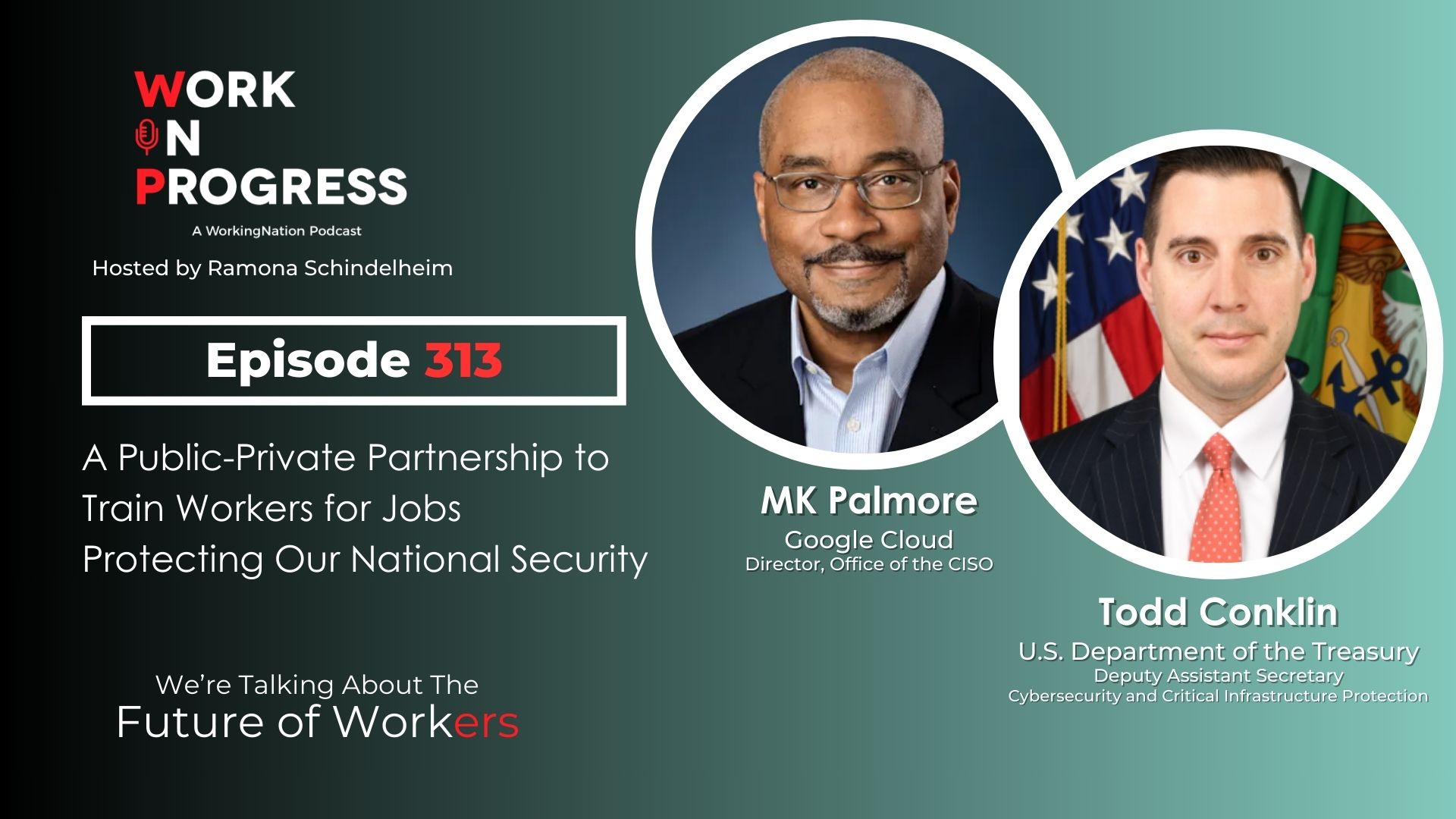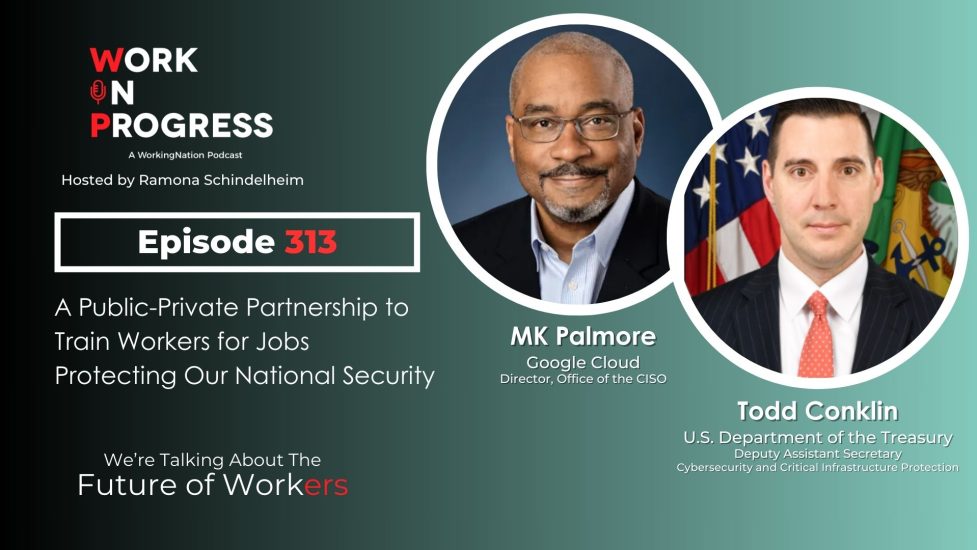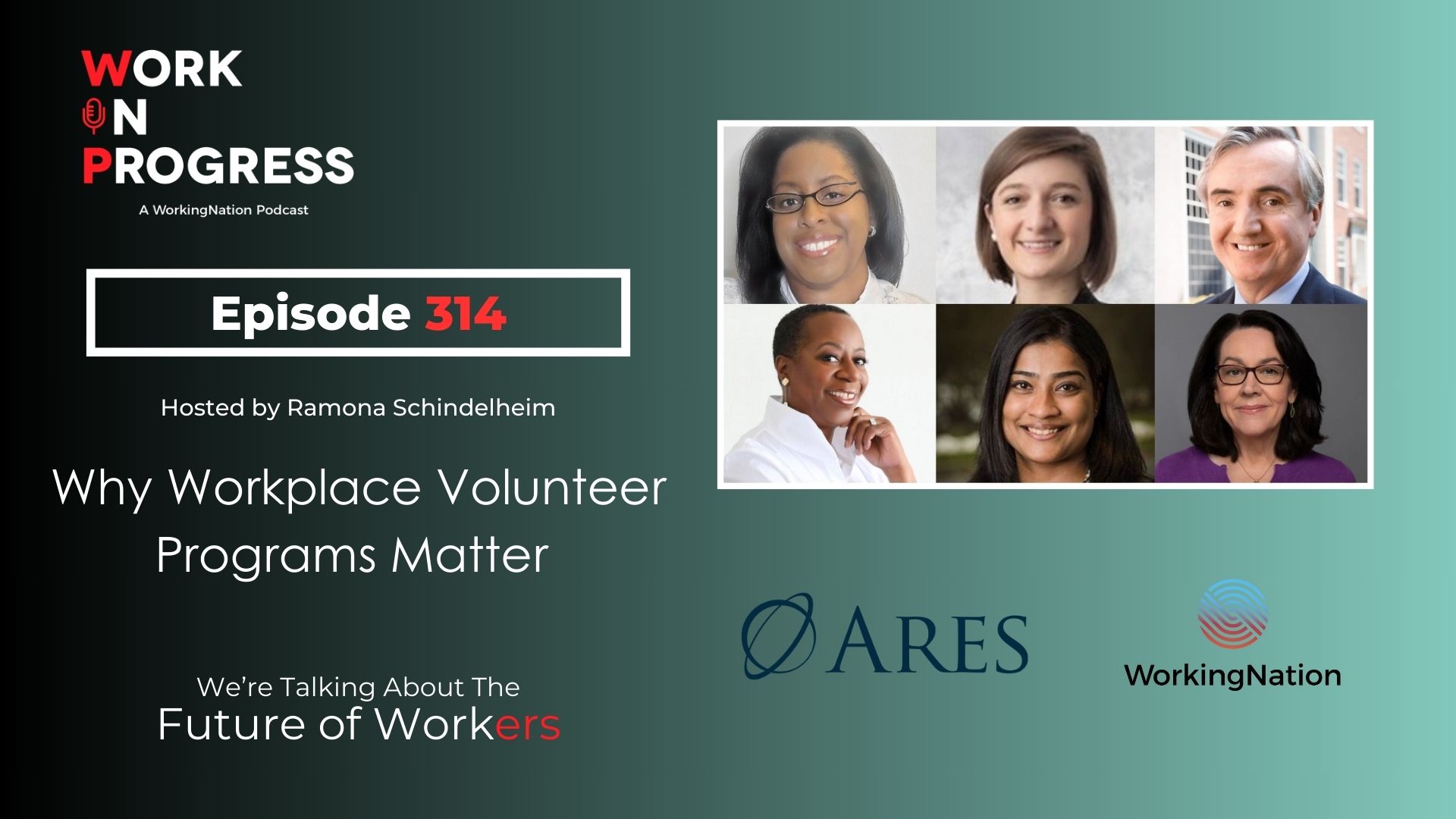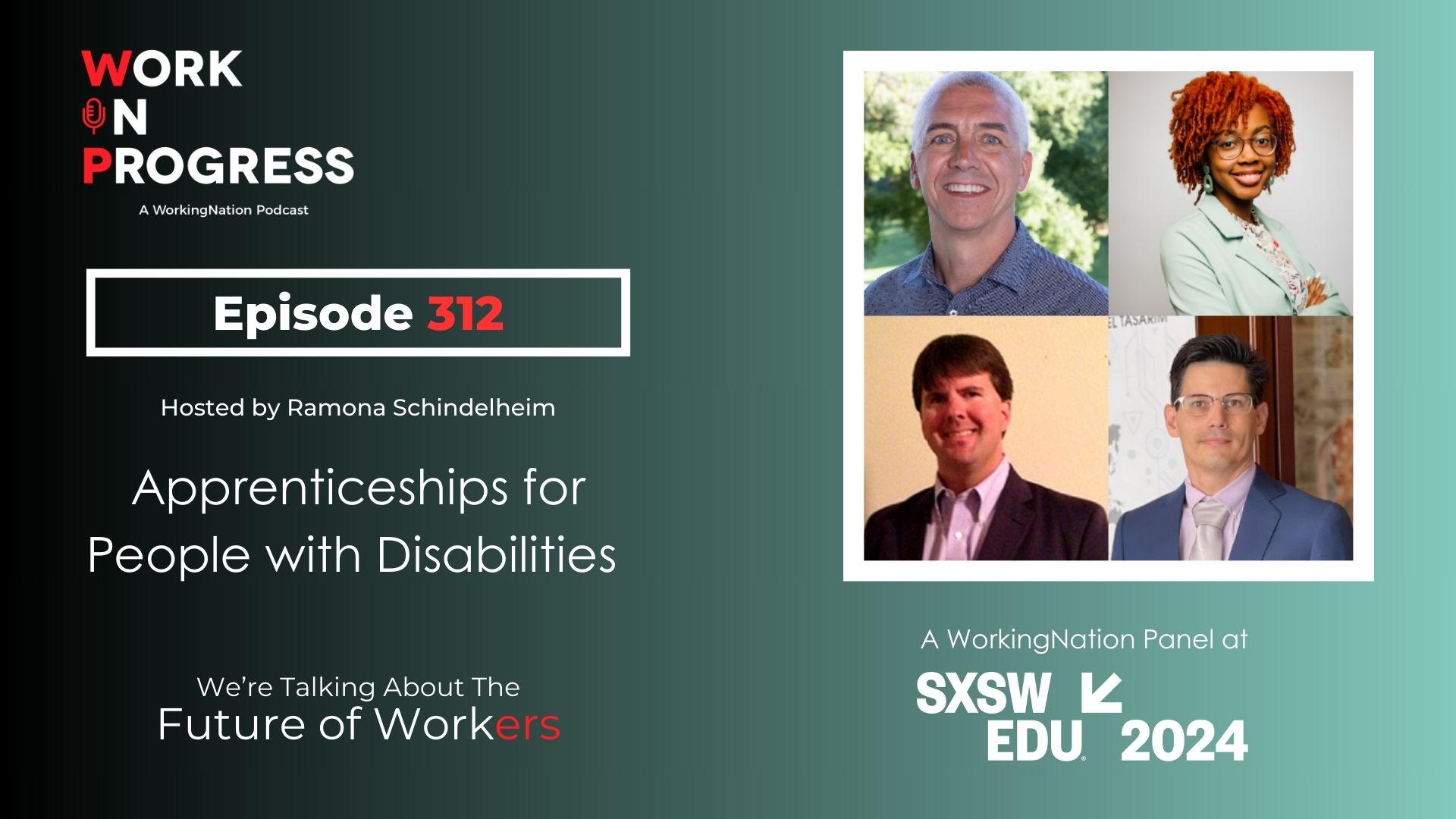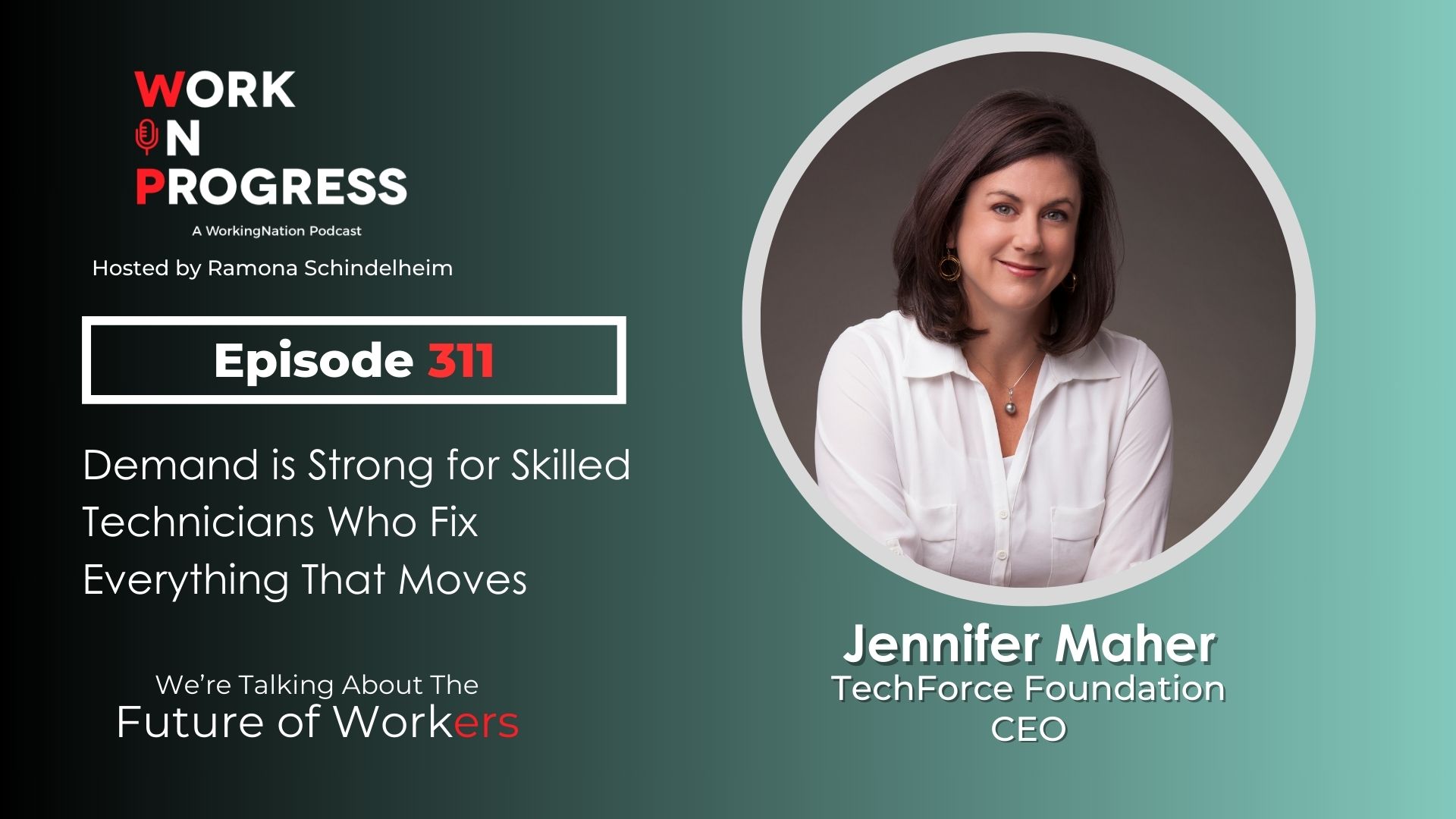Podcast: Play in new window | Download | Embed
Subscribe: Apple Podcasts | Google Podcasts | Spotify | Pandora | Youtube Music | RSS
In this episode of Work in Progress, I’m joined by MK Palmore, director, Office of the CISO, Google Cloud and Todd Conklin, deputy assistant secretary, U.S. Department of the Treasury‘s Office of Cybersecurity and Critical Infrastructure Protection. We’re talking about how the federal government has partnered with Google Cloud to offer two new certifications and another training course to prepare workers for critical jobs protecting our national security.
For the federal government and private employers across the country, the demand for AI and cybersecurity skills is insatiable. U.S. employers posted nearly 200,000 jobs requiring AI skills in the past 12 months.
The World Economic Forum predicts demand for AI and machine learning specialists will grow 40% worldwide over the next five years. The demand for roles in cybersecurity is even stronger, with more than 400,000 jobs posted since April of last year. Both these areas of expertise point to employers’ need for talent that can analyze data.
However, simply put, there are not enough workers with the skills needed to fill all the available jobs.
This week at the ASU+GSV Summit, Google Cloud and the Treasury Department announced a public-private partnership offering new certificate courses in cybersecurity and data analytics and a course in generative AI.
It’s part of the government’s effort to help connect talent to these in-demand tech jobs across industries and sectors, including the government, which is in need of workers to protect our national security infrastructure.
“It’s a broad range of opportunities at Treasury in the cyberspace,” explains Conklin, who in addition to being Treasury’s deputy assistant secretary of cyber is also its chief AI officer. “You have the hands-on IT, actually being a person who is the first line of defense from a cybersecurity specialist perspective. We have general policy specialists that are more on the cyber policy that focus on how do we bolster standards.”
This includes in the financial sector. “Treasury ultimately serves as the bank for the U.S. government and we process a significant amount of payments on behalf of U.S. citizens on a daily basis, which rivals our largest [private] financial institution. Effectively, Treasury itself operates as a global bank to some degree,” explains Conklin.
In addition to cyber, he says there is also a demand at Treasury for people with advanced skills in data analytics and, now, AI, which is where the partnership with Google Cloud comes in.
“Generative AI is the dominating topic today among technologists and cybersecurity practitioners, so that’s the leading cert that’s come out, but we also have a complementary cybersecurity and data analytics cert along with those,” says Google’s Palmore.
“It’s a growing field in terms of certifications that we’ve weighed into because we realize the value of providing certifications to folks as a bit of a shortened pathway in some ways. It provides substantive guidance, advice, and skill levels that will help people enter these growing fields of technology and explore the possibility of a career there.”
Palmore says the certification tells the potential employer a couple of things, especially when combined with practice experience, which you get as part of the training.
“You are stating to an employer that not only can you grasp the academic portion of the work, but that you’ve shown the ability to then apply that work,” he says. “I’m a big believer in the certification pathway and capability. I tell folks that as long as you are willing to do the work the certifications will give you that starting point.”
So, what do you learn in the new Google Cloud certifications training?
“Everything in technology has foundational core components and elements. What we try and do in the certification space is infuse those foundational capabilities and skills into the cert so that at the end of that process the person gaining the certification has at least the foundational skills to get started in any one particular area,” says Palmore.
For example, the cybersecurity certification essentially readies a person for entry-level jobs as a security operations analyst.
“Security operations is the core fabric or content. I call it the ‘heartbeat’ of any functioning security apparatus,” Palmore tells me. “You learn the skills necessary to triage alerts. You may learn some simple coding associated with conducting queries or searches of datasets, compiling information, putting it in a structured way so that you can then relay its importance and impact to the enterprise to others. You’re given some level of ability to assess the information yourself because that’s a key component of any functioning cybersecurity apparatus, as well.”
Conklin says that if you go through the courses with Google, it qualifies you for at least an interview with Treasury and you don’t have to live in Washington D.C. to work for the government. “We’re trying to get access to a much more diverse pool of employees and then also geographically diverse pool of employees. I want to break us out of the cycle of recruiting just from inside The Beltway, as we call it in D.C.”
Both Palmore and Conklin agree this public-private partnership might be the answer to closing the skills gap and meet the growing unmet need for cybersecurity, AI, and data analytics skills in the U.S. government.
“The government certainly recognizes the problem. This is one of the areas only public-private partnerships can really bring together the necessary resources and provide those resources to a potential workforce, so that we can then welcome them and provide them with an entryway into the workforce in a solid fashion,” says Palmore.
He adds, “When you bring the immense resources of the U.S. federal government to bear on those problems along with the private sector, there’s no problem that we can’t solve. But it takes that intentionality to do that.”
Conklin says he is also trying to reach people who might think Silicon Valley is their only option.
“It’s a mission that would attract people who want to help support national security, people who want to be part of the public good, who want to use their skills, their brain power, and their experience to promote U.S. national security and the strength and health of the U.S. economy.
“We’re trying to make it clear that you can have that attitude and mentality, and be successful, and have a good career that you’ll enjoy at Treasury, because we’re offering a lot of entrepreneurial opportunities for employees at the entry level coming in the door,” says Conklin.
Both Conklin and Palmore go into greater details on how the partnership was launched and how it could benefit workers and employers.
The new training and certification courses are being offered on YouTube free of charge to give more people a pathway to enter this field, including career changers and those without a college degree.
You can listen to the podcast here, or download and listen wherever you get your podcasts. You can also find it our Work in Progress YouTube channel.

Episode 313: MK Palmore, Google Cloud, and Todd Conklin, U.S. Department of the Treasury
Host & Executive Producer: Ramona Schindelheim, Editor-in-Chief, WorkingNation
Producer: Larry Buhl
Theme Music: Composed by Lee Rosevere and licensed under CC by 4
Transcript: Download the transcript for this episode here
Work in Progress Podcast: Catch up on previous episodes here

